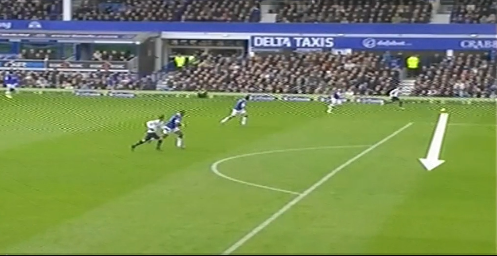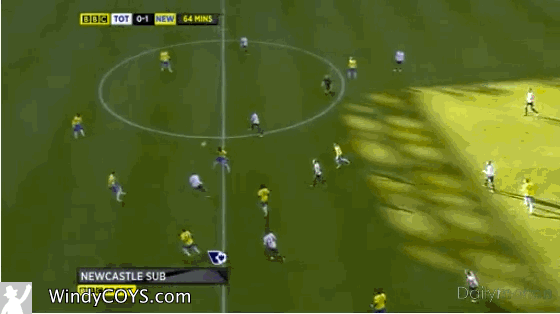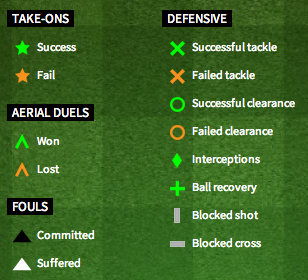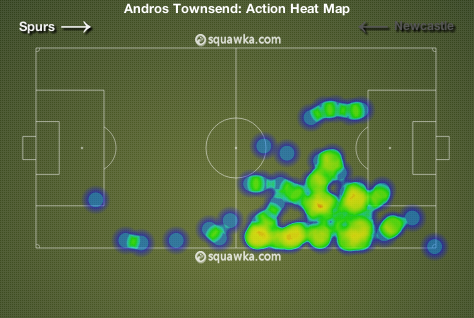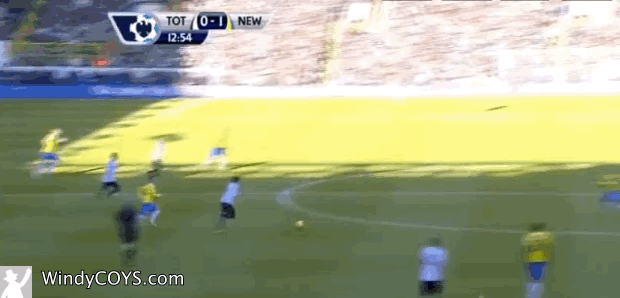Loanee update – Spurs youngsters to be sent on loan?
Jake Livermore has started ten games for Hull City (and made one substitute appearance) and has become a firm favourite. He’s impressed so much that the majority of Hull’s fan-base want Livermore to sign permanently. When questioned on whether he’d consider signing for Hull permanently, Livermore said
“I’m prepared for anything in football. I’m enjoying my time here, I love the lads, the manager and the fans. Everyone here is brilliant and I’m getting a run of games so it’s so far, so good.”
He gave The Telegraph a very interesting interview on young, English footballers in which he spoke a lot of sense:
“I don’t think the biggest problem facing English football is producing players, I think the biggest problem is giving young players enough experience in the Premier League.”
Steve Bruce has admitted that he’s worried about Livermore returning to Spurs in January, saying: “There is a possibility that Jake and Danny [Graham] will be going back to their parent clubs, and that is something we just have to live with. I wouldn’t be surprised if it happened, and we have to be ready for it. It’s a concern.”
Most Spurs fans were surprised to see Benoit Assou-Ekotto sent on loan to QPR at the end of the transfer window. There were rumours of an off-pitch incident with Andre Villas-Boas, and you’d have to think that this was the case, given that Assou-Ekotto is so far beyond Kyle Naughton in terms of left-back competition; it can surely only have been a breach of discipline or a falling out that triggered the move. Assou-Ekotto insists that playing for Redknapp was the reason that he was tempted to QPR:
“I’m enjoying being here. I love working with Harry. He was the main reason I came. The fans have been great to me too.”
He’s made nine starts and one substitute appearance so far, and the fans seem to have taken to him judging by this thread.
Tom Carroll played four matches for QPR before being struck down by an ankle injury. The fan verdicts were mixed, but the players seem keen, Karl Henry saying:
“We’ve missed Tom Carroll since his injury, because he’s done fantastically well for us.”
The good news is that Carroll is due to return to QPR early next week after recovering from injury.
Whilst the fans don’t love him (yet), his statistics look mighty impressive. Across his four appearances, he’s averaging 13 more passes (82.3) than the next player in the Championship (Joey Barton, 68.9), which is remarkable (NB: I’m ignoring George Thorn, who has played one game for Watford, but made 84 passes). Impressively Carroll’s also averaging the most tackles per game (4.5) in the division.
Adam Smith has started nine matches and been brought on as a substitute in one as he attempts to establish himself as Derby’s first-choice right-back. He has been in and out of the side, and has been an unused substitute in their last four.
Smith is now competing with another loan signing, Andre Wisdom, and new boss Steve McClaren commented on the pair after the recent game against Birmingham:
“Adam Smith has done very well for us and I have no qualms with Adam, but Andre Wisdom came in and adapted very well. He showed his quality, his strength and he was good on the ball. All the qualities you expect from a player from Liverpool.”
For me, it would make sense to recall Smith at the earliest opportunity and move him somewhere where he’ll be guaranteed starts.
Simon Dawkins recently joined Smith at Derby County, where he’s made five appearance so far on the right of a front three; four as a starter, and one off the bench. He’s managed one goal so far (at 20 seconds here).
This fans seems impressed by Dawkins so far:
Derby though dominates, Simon Dawkins, always an option, gets better with each match, he excites the crowd and promises so much.
Bongani Khumalo has turned out 18 times for Doncaster Rovers so far (16 in the Championship). I asked local journalist Paul Goodwin (of the Doncaster Free Press & Doncaster Star) how he’d done so far – Paul’s impressed:
Excellent Chris, slotted in seamlessly – very calm, good in air. Big test for him now fellow CB Rob Jones is injured though.
It’s also worth pointing out that Khumalo played for South Africa as they stunned Spain to win 1-0 in the international break.
Centre-back Grant Hall has played 23 matches for Swindon Town (17 in League One) thus far. He’s played mostly in a back four, but more recently in a three.
Alex Pritchard has played 21 times (20 starts) for Swindon, and in his 15 league appearances, he has two goals and five assists – the most assists of all of Swindon’s players.
Ryan Mason has had yet another injury-hit season, playing 12 matches in total for Swindon Town, eight of which were starts. He has scored four goals and got one assist in those matches, playing mostly as number 10, but dropping deeper more recently.
Swindon fan Nigel has been pretty pleased with the Spurs players so far – his latest update for me at the start of November reported the following:
Ryan Mason returned from injury two weeks ago and has started twice since then. Played superbly in a deeper role of CM rather than CAM.
Alex Pritchard played as perhaps a second striker (No.10 sort) and played very well. Had great work rate and moved the ball on the floor quickly. Did get booked, in the end, for diving though.
Grant Hall doesn’t look like he suits a 3-5-2 formation (been playing it last 4/5 games) makes a few mistakes but has the ability to make up for them going forwards.
EDIT: Today I’ve received a further update from Nigel:
Alex Pritchard: Played in a number of formations, playing most effectively as a no.10 just behind a target man. Has shown great technical ability & can beat a player.
Ryan Mason: Although slightly injury prone he has arguably been our best player this season when fully fit. Passing & skill on the ball is on another level to most players in L1. Has a goal or two in him.
Grant Hall: Very good on the ball for a league one CB, however lacks strength, composure & pace. He may look better next to a quicker/better defender, but he does not get that playing alongside Darren Ward. Has slightly improved as a centre back as the season has gone on, but his rather frequent mistakes, which unfortunately are usually punished, has overshadowed this.
Lawrence Vigouroux joined Hyde of the The Skrill Premier (Conference Premier) for a month at the end of October, and has so far made five appearances. Unfortunately four of those have been defeats – 2-1, 4-0, 3-2 and 2-1 – but they managed to draw one 2-2. After his debut the Manchester Evening News reported that he made “a string of excellent saves”. Fans on their forum seem very pleased with his performances so far.
Tomislav Gomelt has only played 39 minutes across two appearances so far for Royal Antwerp in the Belgian Second Division (for comparison, John Bostock – at the club permanently – has made 16 appearances). He has had a number of injuries that have disrupted his season, and he was also away representing Croatia U-19s in October. It’s worth noting that Antwerp are now managed by Jimmy Floyd Hasselbaink.
Yago Falque has played 492 minutes across eight starts for Rayo Vallecano in La Liga, including a start against Real Madrid at the beginning of November where he actually had the ball in the net (although it was ruled out). Despite being involved from the start a lot, he has been substituted in seven of his eight appearances.
Cristian Ceballos has managed 336 minutes across five appearances for Arouca in the Portuguese Premier League. He’s made four starts, one substitute appearances, and has also been an unused sub three times.
Loan window
The loan window for Football League clubs closes at 17:00 on Thursday, 28 November. I would not be expecting a mass exodus of Spurs youngters going out on loan, because they’ve simply not had the opportunities to showcase their talents.
The Under-21 fixtures – where scouts get an opportunity to watch our young talent – have been few and far between. This means not only that there are fewer opportunities to impress, but that when they do have opportunities, they are not match sharp.
I gather that there was a behind closed doors friendly last week in which Ken McEvoy impressed – if any players are to go out on loan, perhaps he will be one.
